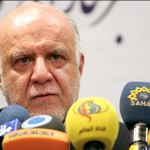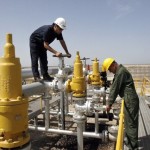What Saudi Arabia’s decision to replace its once-influential oil minister really means

Saudi Arabia’s decision to replace its once-influential oil minister is being viewed widely as the latest effort of Deputy Crown Prince Mohammed bin Salman to consolidate power and pursue what one analyst has called a “brutal battle for market access against arch regional rival Iran.”
In a far-reaching government shake-up, Saudi Arabia issued a royal decree on Saturday in which it announced it was replacing Ali al-Naimi, who had been oil minister since 1995 and a prominent figure in 12-country oil producer group OPEC, with Khalid al-Falih, the chairman of state-owned oil company Aramco.
The move was widely predicted as al-Naimi seemed to have lost his authority at the last OPEC meeting in April in Doha when the group decided not to freeze oil production at current levels in a bid to support global oil prices.
Then, Saudi Arabia – the de-facto leader of OPEC – had initially signaled support for the freeze agreement, only to take a last-minute U-turn following intervention by the increasingly powerful and prominent 30-year old prince Mohammed bin Salman, who insisted that there would be no deal without Iranian cooperation.
Against this backdrop, some analysts are noting on Monday that the Saudi reshuffle is not only about Saudi Arabia’s strategy over oil – to maintain its market share and pressure rival non-OPEC producers rather than to support prices by cutting output – but is really part of the shifting balance of power within the Saudi monarchy and rising tensions with its neighbor, Iran.
Power and Iran
Helima Croft, global head of commodity strategy at RBC Capital Markets, said in a note on Monday that Saudi Arabia’s removal of al-Naimi can be viewed as part of Mohammad bin Salman’s power consolidation.
“While newly appointed Khalid al-Falih is a capable technocrat, he is unlikely to have the independent authority of his predecessor. Importantly, (Mohammad bin Salman) is more focused on ending Saudi’s dependence on hydrocarbons through sweeping reform and maintaining market share versus Iran than he is on pursuing higher oil prices. In our view, while it makes for a big news headline, it does not represent a shift in the Kingdom’s current oil policy,” she said.
Croft noted that Salman – who is reportedly referred to as “Mr. Everything” by Pentagon officials who have been watching his progression and rising prominence in Saudi Arabia’s royal family – “remains the ultimate decision-maker on oil policy.”
Crucially, Croft noted that Saudi Arabia was actively pursuing a strategy to pressure its regional rival Iran, a country which, far from considering cutting output, wants to ramp up production as it tries to get its oil industry back on track after years of economic sanctions.
Iran is a fellow member of OPEC with Saudi Arabia but there is a long history of power struggles in the Middle East between the conservative Sunni monarchy and the Shia-dominated Islamic Republic. Croft noted that recently rising tensions between Saudi Arabia and Iran were coming to a head.
“Moreover, Mohammed bin Salman seems fully committed to waging a brutal battle for market access against arch regional rival Iran, which has resorted to discounting its product in order to regain its pre-sanctions position in key markets such as China and India.”
“In some ways, (Mohammad bin Salman)’s oil policy appears to be an extension of his provocative foreign policy efforts to roll back Iranian influence (including the costly Saudi military intervention in Yemen). Just as (Mohammad bin Salman) is not prepared to make way in the region for a resurgent Iran in the wake of the nuclear deal, he apparently is not prepared to concede an inch in terms of oil market access,” she said.
Oil markets rallied 2 percent in early trade on Monday although much of that rally was attributed to the wildfires in Canada which have caused supply outages.
Source: CNBC





























